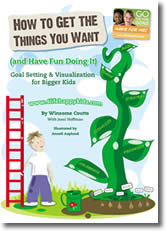Tips to Raising Happy Kids: A Comprehensive Guide
As a parent, you want the best for your children. Nurturing happy kids is a top priority. Creating a supportive environment is key for their emotional and social growth. I've found that parenting tips focused on emotional intelligence and physical well-being make a big difference.
Teaching your children to understand and manage their emotions is important. It sets them up for a lifetime of well-being. Some parents also explore telepathy and astral projection. These can deepen their connection with their kids, fostering empathy and intuition.
Key Takeaways
Creating a nurturing environment is essential for raising happy kids.
Teaching emotional intelligence helps children manage their emotions.
Promoting physical well-being is key for overall development.
Exploring concepts like telepathy can enhance parent-child connections.
Parenting tips that focus on emotional and social development are invaluable.
Understanding Child Development and Happiness
Child development is key to a child's happiness. As parents, knowing this can change everything. By understanding what makes kids happy, you can help their emotional and social growth.
The Science Behind Children's Happiness
Happy parents tend to have happy kids. This shows how important it is for parents to be well. Also, studies say that when parents are depressed, it can hurt a child's happiness.
Developmental Milestones and Their Impact on Well-being
Knowing about developmental milestones is vital. They show if a child needs extra help. For example, hitting social and emotional milestones helps kids make friends and handle feelings.
The Role of Parents in Shaping Happy Children
As a parent, you greatly influence your child's happiness. While some might look into clairvoyance and precognition, it's best to stick to proven methods. These methods support your child's growth.
Some important strategies include:
Creating a nurturing environment that encourages emotional expression and supports social growth.
Being aware of your child's developmental stage and tailoring your parenting approach.
Prioritizing your own well-being to be emotionally ready for your child.
Creating a Secure and Loving Environment
A secure and loving environment is key to your child's happiness. As a parent, you can build a nurturing space. This space helps your child feel emotionally secure and happy.
Building Strong Attachment Bonds
It's important to build strong bonds with your child. Be there for them, show love, and do fun activities together. This helps your child feel safe and trusted.
Consistent Routines and Boundaries
Having regular routines and rules makes your child feel stable. Set times for meals, homework, and sleep. Also, have clear rules and what happens if they're broken. This makes your child feel safe.
Creating a Safe Space for Emotional Expression
It's important to have a place where your child can share their feelings. Make sure they feel heard and understood. Listening to their inner voice helps you support them better.
By being positive and nurturing, you make your child feel secure. Do things that help them relax, like meditation. This supports their emotional well-being.
Effective Communication Strategies with Children
How we talk to our kids affects their feelings and strength. As parents, using good communication strategies is key. It helps us connect deeply with our children.
Active Listening Techniques
Active listening is a strong tool in talking well. It means focusing fully on your child, keeping eye contact, and not interrupting. This shows your child their thoughts and feelings matter, making them more likely to share.
Age-Appropriate Conversations
Talking in a way that fits your child's age is important. For little kids, use simple words. Older kids can handle more complex talks. This helps them grow emotionally and socially.
Validating Feelings While Teaching Emotional Regulation
It's important to accept your child's feelings, even if you don't agree. Acknowledge their emotions and teach them to manage them. Show them how to handle feelings by being a good example. This builds their strength and a positive view of life.
Some parents might use psychometry or mediumship to connect with their child. These practices help understand their needs better.
Nurturing Social Skills and Relationships
Helping your child grow emotionally and psychologically is key. As a parent, you shape their social skills and relationships. This is vital for their well-being.
Building Friendships
To help your child make friends, get them involved in group activities. This could be sports or clubs that match their interests. It teaches teamwork and cooperation.
For example, joining a recreational soccer league is great. It helps them make friends and stay active.
Teaching Empathy and Kindness
Teaching empathy and kindness is essential. Show your child what it means by being kind yourself. Engage them in activities that boost empathy, like role-playing.
Encourage them to do volunteer work. It teaches them the importance of kindness and compassion.
Navigating Social Challenges
Your child will face social challenges and conflicts. Teach them how to solve problems, like active listening and respectful expression. Make sure they feel safe talking about their social experiences with you.
By focusing on these areas, your child will develop important social skills. While telekinesis might spark their imagination, real-world social skills are more beneficial.
Tips to Raising Happy Kids Through Play and Creativity
Play is more than fun for kids; it's key to their growth and happiness. As a parent, supporting your child's creativity and play can greatly impact their joy and development.
Letting kids have unstructured play gives them the chance to explore, learn, and solve problems. This type of play is vital because it lets kids make choices, take risks, and learn from mistakes safely.
The Importance of Unstructured Play
Unstructured play is vital for brain growth. It boosts imagination and creativity, helping kids think differently and find new solutions. For example, building with blocks, making up stories, or playing tag with friends all help with thinking and social skills.
Enhances problem-solving skills
Fosters creativity and imagination
Promotes physical activity and health
Encouraging Creative Expression
Supporting your child's creativity is simple. Just give them art supplies, let them dance, or explore nature. Creativity isn't just for art; it's in many activities that spark imagination.
Some parents might be curious about remote viewing or myths about psychic powers. These topics can lead to interesting talks about the mind's possibilities.
Balancing Screen Time with Other Activities
In today's world, kids often spend too much time on screens. But it's important to find a balance. Encourage outdoor play, reading, and creative hobbies to keep things balanced.
By watching screen time and making sure kids do other activities, you help them lead a healthy life. This way, they can have a good relationship with technology.
Building Resilience and Coping Skills
Resilience is more than just bouncing back from tough times. It's about growing and learning from those experiences. As a parent, teaching your child to be resilient is a precious gift. It's about showing them how to face life's challenges with confidence and hope.
Teaching Problem-Solving Strategies
Teaching your child to solve problems is key to building resilience. This means helping them think deeply about problems, find solutions, and act on them. This way, you're giving them the power to control their lives.
Encourage your child to identify the problem and break it down into smaller, manageable parts.
Help them brainstorm possible solutions and weigh their pros and cons.
Support them in picking a solution and putting it into action.
Embracing Failure as a Learning Opportunity
Failure is a part of life, and how we handle it matters. By seeing failure as a chance to learn, you can help your child develop a growth mindset. This means seeing challenges as opportunities to grow, not threats to their ego.
"The greatest glory in living lies not in never falling, but in rising every time we fall." This mindset empowers children to be more resilient and flexible.
Developing a Growth Mindset
A growth mindset is closely tied to resilience. It's about praising effort over talent and seeing challenges as growth opportunities. By nurturing this mindset, you help your child become more resilient and ready for life's ups and downs.
Praise your child's effort and persistence, not just their natural ability.
Encourage them to take on challenges that are slightly beyond their current abilities.
Help them understand that setbacks are a normal part of learning.
By teaching problem-solving, embracing failure, and fostering a growth mindset, you can equip your child with the resilience and coping skills to succeed in life.
Promoting Physical Health and Well-being
The journey to raising happy kids starts with physical health and well-being. As parents, we shape our children's body relationship through our habits. This is key in their development.
Nutrition and Its Impact on Mood
A balanced diet is vital for a child's health and mood. Nutritious foods help with growth, energy, and brain function. Adding fruits, veggies, whole grains, lean proteins, and healthy fats to their diet boosts mood and well-being.
Here are some nutritional tips:
Encourage a variety of fruits and vegetables
Add whole grains to meals
Reduce processed and sugary foods
The Importance of Regular Physical Activity
Regular exercise is key for both physical and mental health. It reduces stress, improves mood, and boosts brain function in kids. Encourage your child in various activities like sports, dance, or outdoor play to love physical activity.
Benefits of regular physical activity include:
Improved physical health
Enhanced mental well-being
Better sleep quality
Establishing Healthy Sleep Habits
Sleep is critical for a child's health. Starting healthy sleep habits early has lasting benefits. Adequate sleep each night improves mood, focus, and overall well-being.
Here are tips for healthy sleep habits:
Create a bedtime routine
Make sure the sleep area is comfy and sleep-friendly
Limit screen time before bed
Balancing Structure with Independence
Parents often struggle to find the right balance between structure and independence for their kids. As children grow, they need both the stability of structure and the freedom to learn on their own.
Age-Appropriate Responsibilities
Assigning age-appropriate responsibilities helps kids feel more autonomous and able to make decisions. Simple tasks like feeding a pet or making their bed can boost their confidence and self-reliance.
Supporting Autonomy and Decision-Making
Supporting autonomy means letting kids make their own choices. This could be as simple as picking what to wear or what to do on a Saturday. It helps them develop decision-making skills and learn from their mistakes.
Finding the Right Balance Between Guidance and Freedom
It's important to balance giving kids independence with providing guidance. Parents should aim to give kids the freedom to choose while ensuring their safety. Some parents might also explore psychic powers to help their kids become more independent and confident in their decisions.
Conclusion: Raising Happy Kids Is a Journey
Raising happy kids is a journey that needs patience, understanding, and support. You've learned from this guide that a secure and loving environment is key. Effective communication and nurturing social skills are also important for your child's growth.
By following these tips, you can help your child build the skills and confidence they need. This will help them thrive in life.
As you continue on your parenting journey, you might wonder about psychic abilities in your child's life. It's important to separate myths from realities. This understanding helps you make informed decisions.
Fostering a positive and supportive relationship with your child is essential. It helps them grow into happy and well-adjusted individuals.
By being a positive influence and guiding your child through life's challenges, you can help them become capable and confident. Your parenting journey is unique. By staying committed to your child's well-being, you can help them achieve happiness and success.
FAQ
What are psychic powers, and how do they relate to child development?
Psychic powers include abilities like telepathy and clairvoyance. Some parents look into these to understand their child better. They hope it helps their child's well-being.
Can everyone develop psychic powers like telepathy or intuition?
It's not clear if everyone can get psychic powers. But, some research says practices like meditation can help. It might boost intuition and other psychic skills.
How can I help my child develop emotional regulation skills?
To help your child with emotions, validate their feelings. Teach them coping strategies and show them how to express emotions healthily. Active listening and talking about feelings in a way they can understand are key.
What are the benefits of developing psychic abilities, and how can they impact my child's well-being?
Psychic abilities might make your child more intuitive and sensitive. They could understand themselves and others better. This could improve their emotional intelligence and relationships, making them happier.
How can I balance structure with independence for my child?
Give your child tasks that fit their age. Support their choices and decisions. Find a balance between guiding them and giving them freedom. This helps them feel confident and self-assured.
What are some common myths and realities about psychic powers?
Many think psychic powers are magical or supernatural. But, some abilities, like intuition, might be natural. Practices like meditation can help develop these skills.
How can I nurture my child's social skills and relationships?
Help your child make friends and teach them to be kind and empathetic. Guide them through social challenges. Role-playing and encouraging positive interactions can help.
What is the role of play and creativity in raising happy kids?
Play and creativity are vital for a happy childhood. They help kids develop skills, express themselves, and stay positive. Give your child chances to play freely and encourage their creativity.





